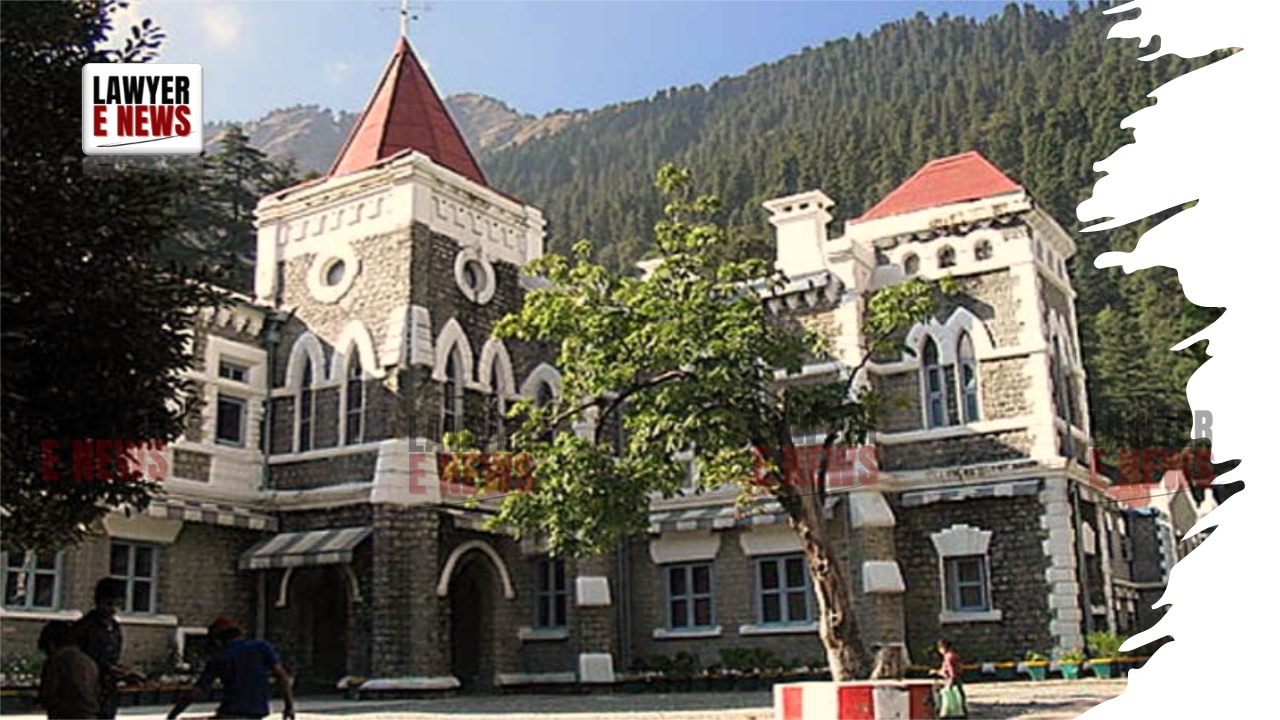-
by Admin
15 February 2026 5:35 AM



High Court Dismisses Husband’s Revision Petition, Validates Claims of Cruelty and Non-Consensual Acts
In a significant ruling, the High Court of Uttarakhand at Nainital upheld the Family Court’s order directing Dr. Kirti Bhushan Mishra to pay maintenance to his estranged wife and son. The judgment, delivered by Justice Ravindra Maithani, dismissed the husband’s revision petition challenging the maintenance order. The court emphasized the credibility of the wife’s allegations of dowry harassment, cruelty, and non-consensual acts, highlighting the wife’s valid refusal due to physical incapacity.
The case originated from an application filed under Section 125 of the Code of Criminal Procedure, 1973 (Cr.P.C.) by Smt. Gargi Kar (the wife) and her son against Dr. Kirti Bhushan Mishra (the husband). The wife alleged that after their marriage on December 8, 2010, she was subjected to dowry harassment and cruelty, including forced anal intercourse, which caused her severe physical injuries. The Family Court in Roorkee directed the husband to pay ₹25,000 per month to the wife and ₹20,000 per month to the son as maintenance. The husband challenged this order through a criminal revision petition.
The court meticulously examined the allegations made by the wife, including dowry harassment and forced anal intercourse. It was noted that the wife had provided detailed accounts of the husband’s abusive behavior, including physical violence and forcing her into non-consensual acts. The court observed, “The respondent no.2 (wife) has stated that she got injuries on her body parts due to such act; she was taken to various hospitals. She was also taken in a Nursing Home at Roorkee, but the documents are with the revisionist.”
Addressing the husband’s argument that anal sex is not an offense post-Navtej Singh Johar ruling, the court clarified, “For refusal to have carnal intercourse against the order of nature, which was done by the respondent no.2, had valid reasons. The respondent no.2 was physically incapable to do so because she had injuries. Therefore, this refusal does not amount to mental cruelty.” The court validated the wife’s refusal due to her physical incapacity resulting from the injuries inflicted by the husband.
The judgment extensively referenced legal precedents, including Navtej Singh Johar vs. Union of India (2018) and Samar Ghosh vs. Jaya Ghosh (2007). The court highlighted, “Exception 2 to Section 375 IPC cannot be taken out from it while reading Section 377 IPC in relation to husband and wife.” The court reiterated that physical incapacity and valid reasons justify a wife’s refusal for non-consensual acts, and such refusal does not constitute mental cruelty.
Justice Ravindra Maithani remarked, “The corroboration provided by the medical evidence is a significant factor that lends credibility to the prosecution’s case, especially when witnesses turn hostile under duress.” This statement underscores the importance of medical evidence in substantiating the wife’s claims of physical abuse.
The High Court’s decision to dismiss the revision petition reinforces the judiciary’s commitment to protecting the rights of victims of domestic violence and sexual abuse. By upholding the Family Court’s maintenance order, the judgment affirms the credibility of the wife’s allegations and emphasizes the validity of refusal due to physical incapacity. This ruling is expected to have a substantial impact on similar cases, strengthening the legal framework for addressing domestic abuse and ensuring justice for victims.
Date of Decision: 19th July 2024
Dr. Kirti Bhushan Mishra vs. State of Uttarakhand and Others
